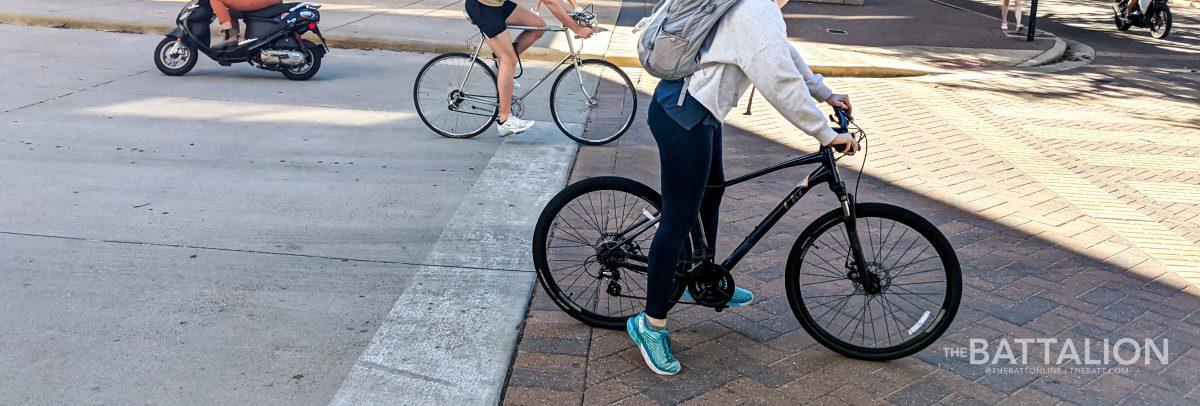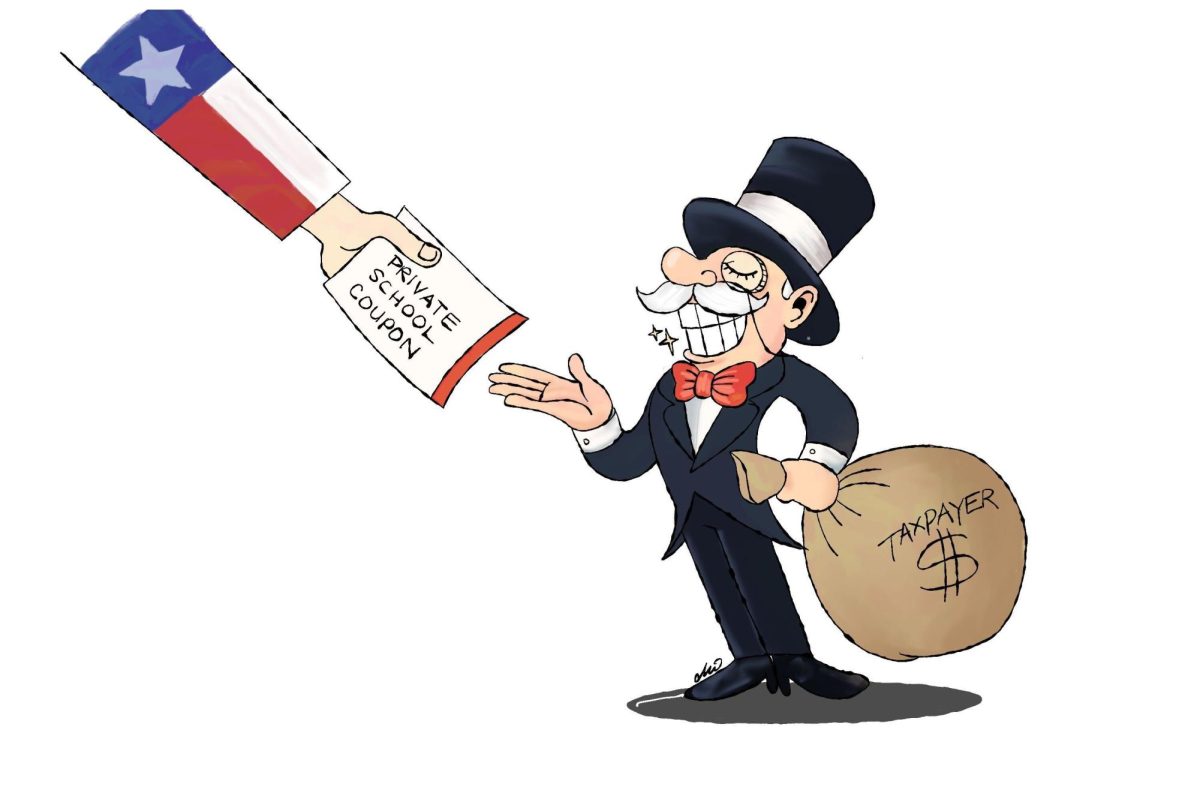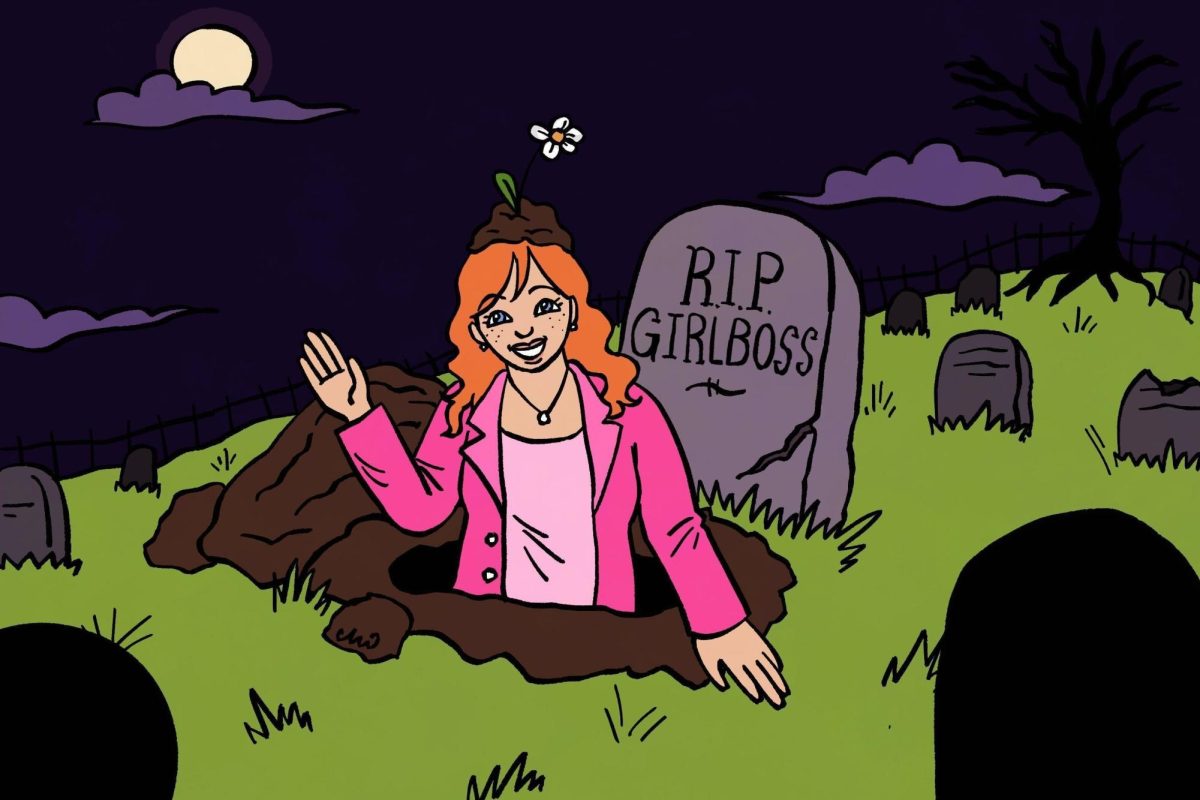In the battle between bicycles and automobiles, cyclists have always been at a disadvantage. It’s much harder to kill someone with a bike than a car, unless you beat them over the head with it.
However, according to many state laws, there is little difference between motorists and cyclists. “A bicycle is a vehicle, and a person operating a bicycle has the rights and duties applicable to a driver operating a vehicle.” As a community that heavily utilizes bicycles, College Station needs to join the growing movement placing practicality over a one-size-fits-all solution.
Coming to a full stop at stop signs only to restart and try to build up speed seconds later takes much longer on a bike than in a motorized vehicle. This delay creates added danger, as a previously unseen car could have come within a dangerous distance in that time. Not to mention many cyclists ignore stop signs anyway, a situation anyone who has lived in College Station long enough is keenly aware of.
The fact of the matter is: bikes are not cars, and treating them as such often creates unnecessary and dangerous situations for drivers and cyclists. Some states and cities have recognized this problem and implemented a much-needed reimagining of how cyclists should behave on the road. The biggest biking sensation sweeping the nation has come to be known as the “Idaho Stop.”
The Idaho Stop refers to state legislation passed in 1982, dictating that cyclists simply yield at stop signs and treat red traffic lights as a car would a stop sign. To many drivers who live in constant fear of the next cyclist waiting to hurl themselves in front of their bumper, this may sound counterintuitive, but it gets results. A 14.5% decrease in bicycle injuries occurred within the first year the law was enacted.
Despite its success, Idaho would remain solitary in its policy for 35 years, becoming a thing of legend for online cycling communities until 2017, when The Bicycle Friendly Delaware Act was put into law, made the Potato State its first new friend among many more to come. Delaware’s law, which only dictates that cyclists yield at stop signs, caused a 23% decrease in crashes involving bicycles at intersections after 30 months.
Since then, six more states — plus some municipalities in Colorado — have passed stop-as-yield laws. Utah, North Dakota and Oklahoma passed their legislation this year. Now two out of four of Texas’ neighboring states, Oklahoma and Arkansas, have full Idaho Stop laws in place.
Texas should be the ninth state to adopt the Idaho Stop, and if not, then College Station should follow the lead of Colorado cities. The people of College Station and students at Texas A&M are smart enough to maneuver safely under the stop-as-yield framework. As many as 85% of cyclists who already don’t fully halt at stop signs do so in a safe manner.
As well as making the roads safer for everyone, more relaxed laws may encourage people to ride bikes more often. Heart disease and other illnesses that can be traced back to inactivity have been leading causes of death in the United States for 100 years. We should do everything we can to promote biking. There’s nothing to lose and everything to gain; wouldn’t you like to be a cyclist, too?
The Idaho Stop could be the first major step in making cycling reform more popular and accessible. Dedicated bike lanes separating clueless pedestrians from cyclists? Less pollution and cleaner, more efficient cities? The possibilities are limitless. A utopian cyclist’s paradise like that of The Netherlands may be just on the horizon. Once the first hurdle is crossed, cyclists everywhere can join together in the same harmonious song. While issues like inflation, twisted cycle paths and lousy spokes-people may always be a part of life’s vicious cycle, sometimes the smallest changes can make the biggest influence.
To get closer to this vision of a better world, we need to institute better biking policies.
Full stop.
Zachary Freeman is an anthropology senior and opinion columnist for The Battalion.
Opinion: Texas should adopt Idaho Stop
November 21, 2021
Photo by Photo by Kyle Jones
Opinion columnist Zach Freeman discusses the need for a cycling reform on Texas streets in his latest piece.
0
Donate to The Battalion
$1915
$5000
Contributed
Our Goal
Your donation will support the student journalists of Texas A&M University - College Station. Your contribution will allow us to purchase equipment and cover our annual website hosting costs, in addition to paying freelance staffers for their work, travel costs for coverage and more!
More to Discover
















